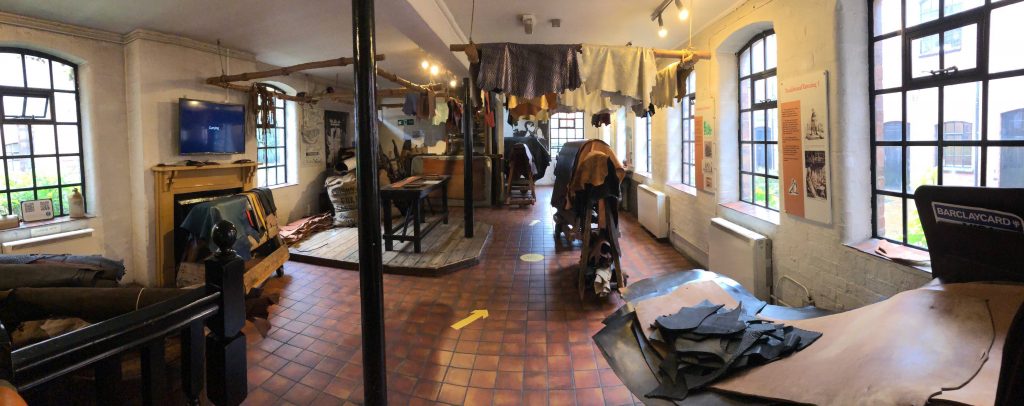One topic that frequently recurs in the various sound recordings the Midlands team has worked with is that of industrial history. Manufacturing has played an important role in the economy of the Midlands, with different towns and counties having their own niches. In a previous post we explored the collections held by the Forge Mill Needle Museum which detailed the needle and tackle making industry of Redditch. In a similar vein, the Walsall Leather Museum explores Walsall’s history as a leatherworking town, as this post will explain.
The origins of Walsall’s leather industry date as far back as the Middle Ages, coinciding with the craft of lorinery. Over the centuries the industry continued to develop in Walsall, however it was not until the early 19th century that leatherworking became a significant local trade. As horse riding declined with the rise of the internal combustion engine, the range of goods produced in Walsall evolved to incorporate fashion items such as bags and wallets. Today the luxury goods market remains a key sector for Walsall’s leather industry, and there has also been a revival in the traditional saddlery and bridle trade. Thus, unlike many other areas of manufacturing in Britain, Walsall’s leather industry has managed to survive into the 21st century.

Walsall Leather Museum opened in 1988 and holds collections relating to the history of the leather industry and the lives of its workers. Within its collections the Museum has a substantial set of oral history interviews, which the UOSH Midlands team digitised and catalogued as part of the UOSH project. The 95 interviews were recorded between 1989 and 2013 and document memories of working life within the leather trade as well as life outside work. This helps to give a holistic view of Walsall in the 20th century.
If you are interested in finding out more about the Museum, visit its website. You can also use the British Library SAMI catalogue to explore the sound collections further.
Post by Elizabeth Gray.


 Subscribe to Colin Hyde's posts
Subscribe to Colin Hyde's posts
Recent Comments